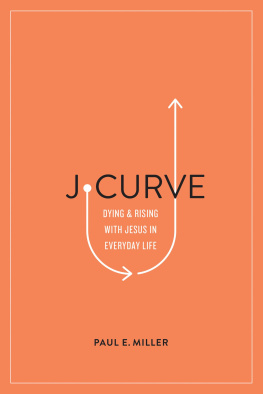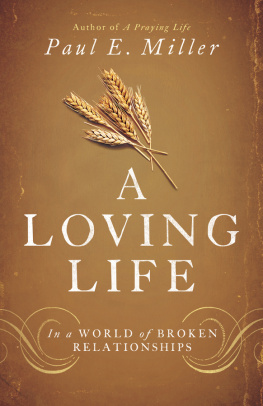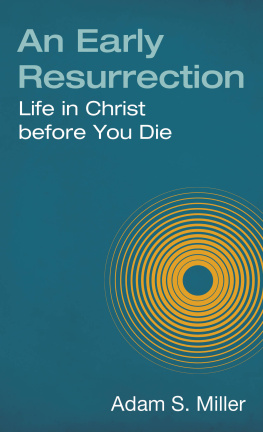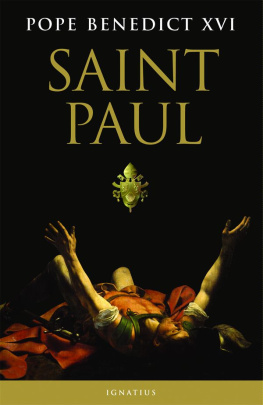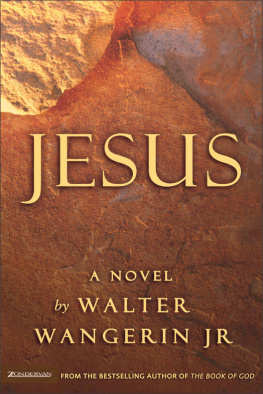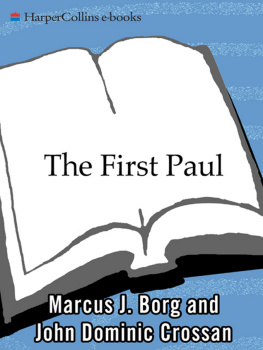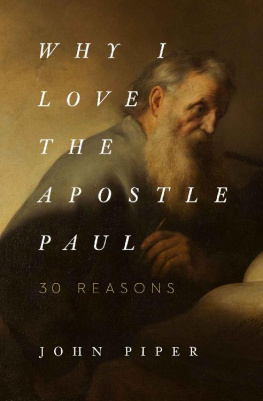Table of Contents
Landmarks
How the J-Curve Defeats Tribalism
Pauls vision of the good encompasses three distinct visions. As weve emphasized, each vision involves a distinct task and needs our attention.
The first task, rediscovered by Martin Luther, is the simplicity and beauty of faith. Luther put his finger on the problemmedieval faith in Jesus for salvation was not pure. It was corrupted with our own futile doing.
The second task focuses on love, especially the J-Curve . We can be pure in the midst of a crooked and perverse generation.
Now, in Part 5, we introduce a third vision, formed by the first two visions: a unified and loving Jesus community. This vision focuses on the final productthe leveling and uniting effect of our union with Christ, which brings together all the polarities of this world: male/female, rich/poor, black/white, slave/free, healthy/disabled, and Greek/Jew.
These three visions are tightly linked. A pure faith creates a pure love, which forms the beauty of Jesus in community.
A pure faith creates a pure love, which forms the beauty of Jesus in community.
Creating a loving community is extraordinarily difficult. We all long to be part of an accepting community we can call home, but even in a family, where we share common genes and a common upbringing, the task is daunting. What many struggle to do in their families, the apostle Paul wants to do with the Corinthians, who share neither common DNA nor similar upbringing. Hes determined that they will all be one.
You see, anyone can form a community. Just get like -m inded people together and prestoyou have a tribe. Thus, the rise of tribalism in our culture. Paul repeatedly turns to the pattern of Jesus s dying and rising as a way of shaping the Corinthians and their tribes into a true body of Christ. In Philippi, Paul presented a positive vision of a Jesus community; now, in Corinth, he goes after a negative vision. In all Christ formation, you need to put off (remove the negative) and put on (add the positive). First and Second Corinthians make an excellent primer for forming a Jesus community, because they give us multiple concrete examples of what not to do!
Lets take a look at the extent of the problem Paul is facing in Corinth.
The Corinthians Way of Community
Corinth was a large, bustling boomtown in southern Greece, much like San Francisco during the 1849 gold rush. Its strategic location on a narrow strip of land meant it controlled the east -w est trade in the Mediterranean. The wealth it accumulated from trade made Corinth an upwardly mobile society, filled with the newly rich and the always poor.
Paul traveled south through Greece to Corinth in the spring of AD 50. Walking down the longest colannaded sidewalk in the ancient world, he passed under a majestic triumphal arch with two gilded chariots and into the forum or marketplace. The forum itself was a vast open space thronged with merchants, street -h awkers , travellers, and local residents. Varicoloured tents covered the market stalls. He would see works of public art: paintings, marble sculpture, and works of bronze, shrines, sanctuaries and temples, shops... dazzling colours.
As Paul entered the forum, off to his far right was a monument that recently had been erected by a man named Babbius, with this epigraph:
Gnaeus Babbius Philinus, commissioner and overseer of religion, had this monument erected at his own expense, and he approved it in his offical capacity of mayor.
We can tell a lot about Babbius from this inscription. He was one of the two purple -r obed mayors. He likely became wealthy from trade since he also built a temple to Poseidon, the god of the sea. Since he didnt mention his father (Babbius, the son of... ), he was likely a freedman, a slave who had bought his freedom. He was a self -m ade multimillionaire.
Babbiuss monument promoted Babbius. To make sure no one missed it, he wrote his inscription twice. This was his solution to a problem Ive wrestled withif you are humble, no one notices you! Babbius reflected the mind of Corinth:
Corinth was a city where public boasting and self -p romotion had become an art form. The Corinthian people thus lived with an honor -s hame cultural orientation, where public recognition was often more important than facts.... In such a culture a persons sense of worth is based on recognition by others of ones accomplishments, hence the self -p romoting public inscriptions.
In short, Corinth was a celebrity culture. But whats a celebrity without fans? So wealthy people or patrons like Babbius would essentially buy their fans. The more fans, the higher Babbius went up the Failure -B oasting Chart, which in turn helped his fans move up.
Fig. 30A. Honoring Babbius
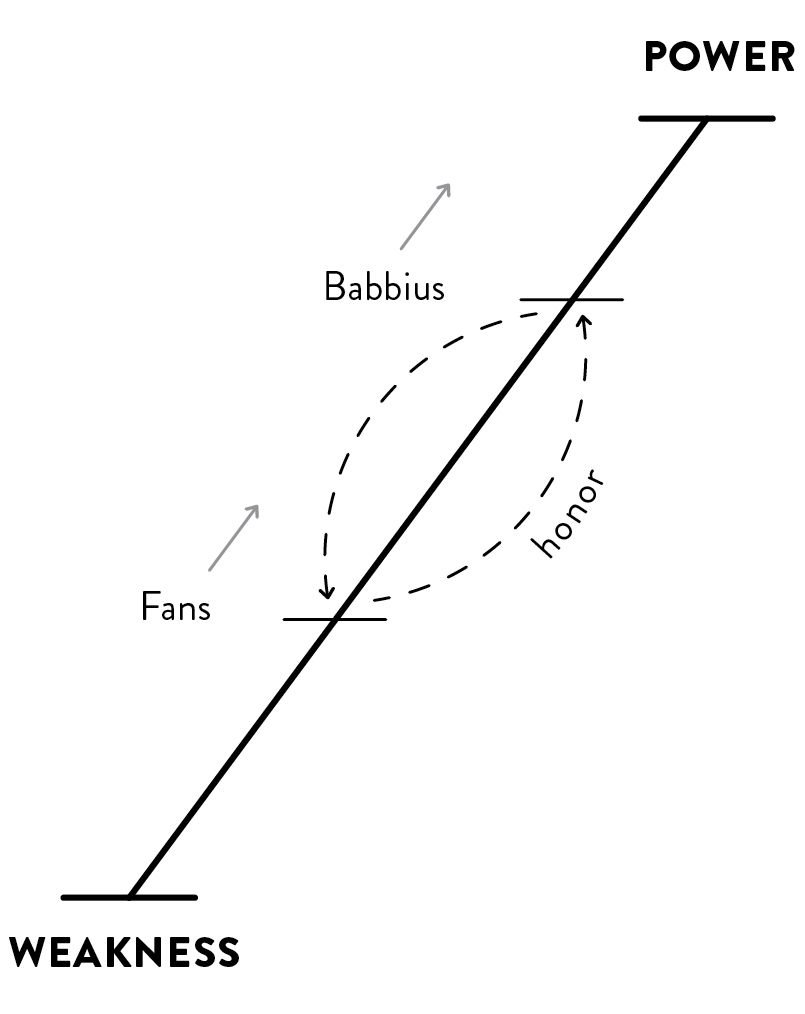
A simple exchange occurred: patrons gave their fans money, and the fans gave their patrons honor in the forum and assembly. The fans were the patrons cheerleaders, PR men, or whatever the patron needed. An ambitious young man like Augustine climbed the patronage ladder, leaving his patron in Carthage and finding a more prominent one in Rome. Babbius needed his fans because there is only so much room at the top. In the competition for glory, we need allies.
Babbiuss quest looked like this: Money Friends Honor Power.
A Celebrity Culture Invades the Church
After eighteen months planting the church in Corinth, Paul moves across the Aegean Sea to Ephesus, where he hears reports of the celebrity culture invading the church and creating factions. Paul confronts this head on:
I appeal to you, brothers, by the name of our Lord Jesus Christ, that all of you agree, and that there be no divisions among you, but that you be united in the same mind and the same judgment. For it has been reported to me by Chloes people that there is quarreling among you, my brothers. What I mean is that each one of you says, I follow Paul, or I follow Apollos, or I follow Cephas, or I follow Christ. (1 Cor. 1:1012 )
The Corinthians have created celebrities (Paul, Apollos, Cephas, and Christ), complete with rival fan groups. Instead of a Jesus community, they have formed competing clubs or tribes. They know the center of the gospel (justification by faith), so Paul barely mentions it in his letters to them. What they dont know is how to re-enact the gospel, how to participate in the dying and rising of Jesus . In Corinth, justification by faith sits like a shroud over an essentially pagan power structure. The Corinthians dont know that the normal Christian life is not about gaining power, but about losing power for the sake of love. In short, they dont know the J-Curve or the community it forms.
Marketing 101: Four Ways to Promote Yourself
To understand Pauls response, lets see the four ways the Corinthians moved up the Failure -B oasting Chart.
Money was the best way up. Babbius, like other hardworking freedman, converted his wealth into honor by gifting the city with at least four temples and monuments.
Lacking money, another path up was cultivating wisdom. Weve already encountered bits of wisdom in Babbius and Plutarch:
Let others know of your accomplishments. Market yourself.
Buy your way up the ladder of success. Money is power.
Display your generosity to move you up the ladder of others esteem.
Manipulate your friendships to get a good patron.
Get in the right group.
Use people as stepping -s tones to your glory.
But people needed to appreciate your wisdom. Thats where the third path came in: oratory or fine speech. Eloquence was the ultimate Facebookit put you on display like nothing else. Plutarch gives us some first -c entury wisdom:

